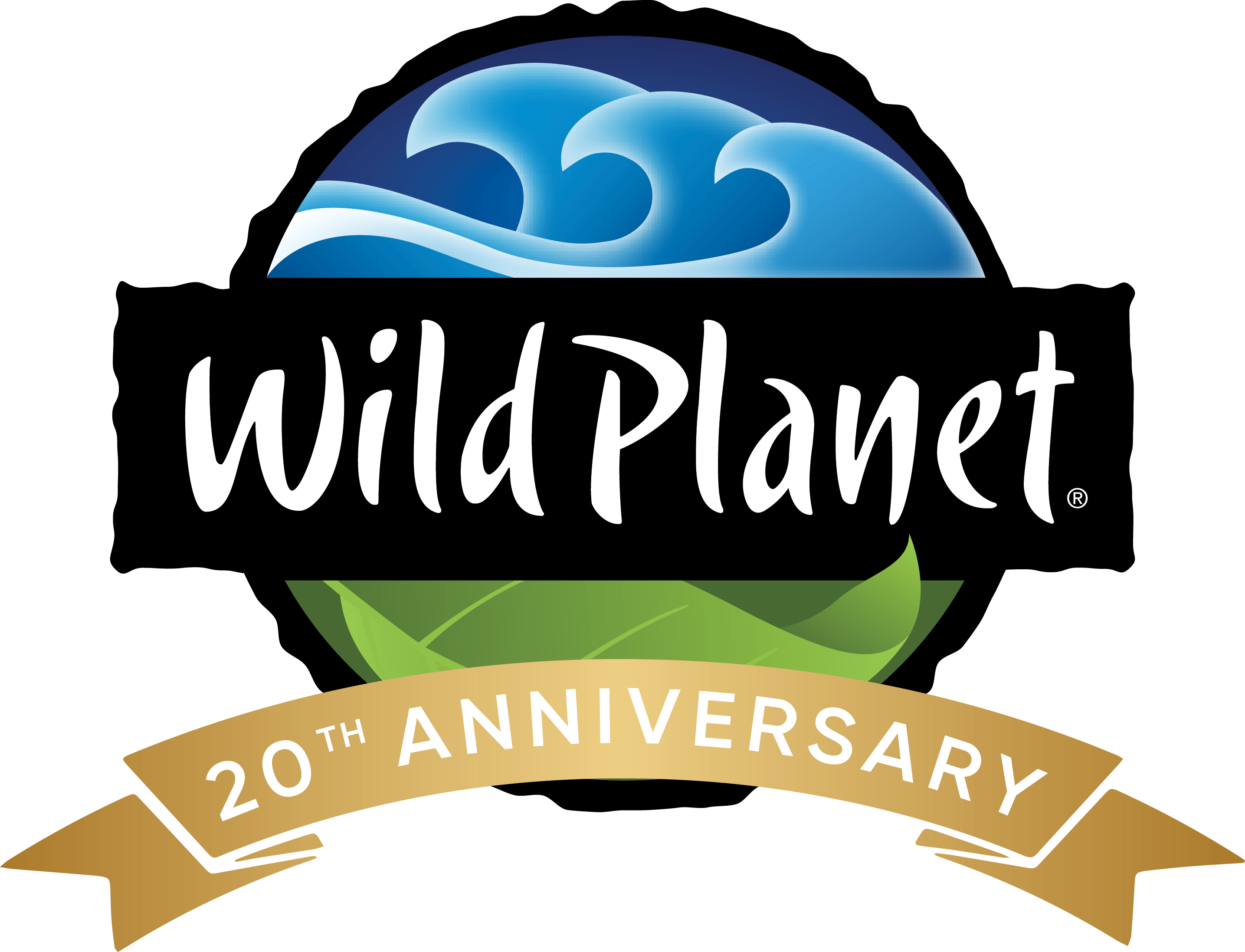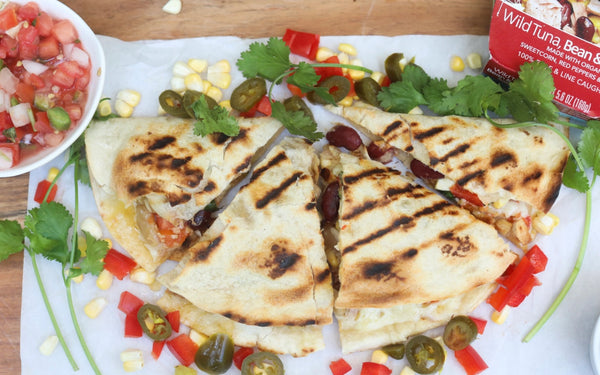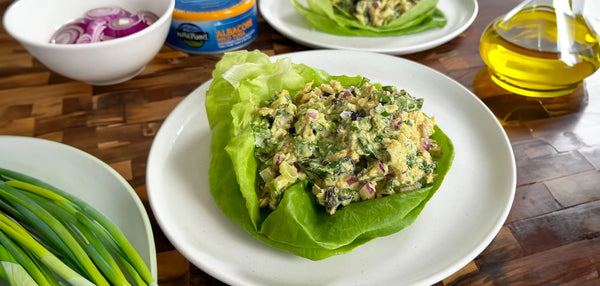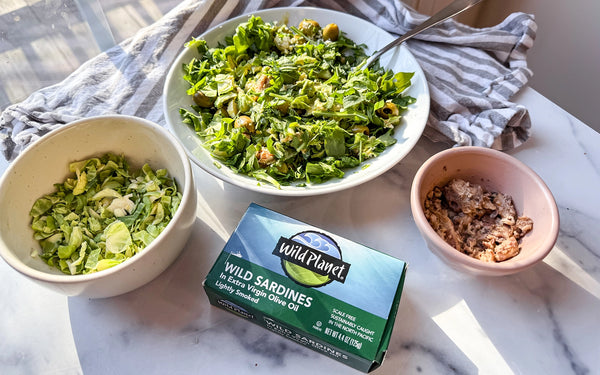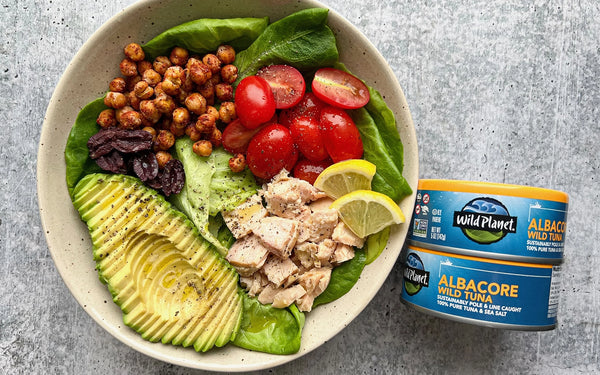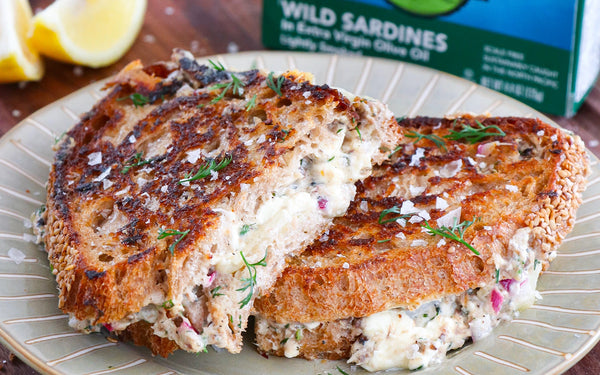At Wild Planet, we believe there’s no real separation between land and sea. Our actions on land eventually affect our oceans, marine life and wild life — and the products we use in our homes are no exception. Environmental experts report that the average home contains 62 toxic chemicals. Not only are these toxins bad for our bodies, but they also contain pollutants that are harmful to our planet. While many world issues can often seem too large to tackle, this is an environmental problem that we can all solve. By simply making practical changes, we can simultaneously help reduce environmental pollution and improve our health. To help get us started, we’re joined by Lisa from The New Knew (formerly This Organic Girl) who provides her tips and tricks to help us ‘clean green’, along with a few great money-saving deals on non-toxic cleaning products. Bonus! Our team also compiled a few of our favorite DIY cleaning solutions, in case you are interested in creating your own household cleaning products.
I am a big advocate of baby steps when it comes to greening up your home. Learning that carcinogenic toxins lurk in your makeup, personal care products, furniture, mattresses, clothes, food, cleaning supplies and more is kind of overwhelming – and that’s putting it mildly. One way to maintain sanity while transitioning to a less toxic life is the Baby Steps Approach. Meaning, when you run out of something – weather it be toothpaste, deodorant, floor cleaner or laundry soap – look to replace it with a cleaner, nontoxic alternative. Investigate one product at a time. Research the ingredients, find and try alternatives and see what works for you. It has taken me a few years to vet my cleaning routine down to these staples. I am still refining my routine and I love trying new products plus I am always investigating and learning as I go. I have two really strict standards: 1. The product MUST perform. 2. The product can not pose a danger to me or my family’s health. This is where I am now:
I am a big advocate of baby steps when it comes to greening up your home. Learning that carcinogenic toxins lurk in your makeup, personal care products, furniture, mattresses, clothes, food, cleaning supplies and more is kind of overwhelming – and that’s putting it mildly. One way to maintain sanity while transitioning to a less toxic life is the Baby Steps Approach. Meaning, when you run out of something – weather it be toothpaste, deodorant, floor cleaner or laundry soap – look to replace it with a cleaner, nontoxic alternative. Investigate one product at a time. Research the ingredients, find and try alternatives and see what works for you. It has taken me a few years to vet my cleaning routine down to these staples. I am still refining my routine and I love trying new products plus I am always investigating and learning as I go. I have two really strict standards: 1. The product MUST perform. 2. The product can not pose a danger to me or my family’s health. This is where I am now:
LAUNDRY SOAP:
There are over 85,000 industrial chemicals out there and the majority of them are not even tested for safety. On top of that, cleaning product manufacturers are not legally required to list their ingredients on their packaging. Start looking at labels and you will find things like “99% other ingredients.” It’s crazy that companies are not required to disclose ingredients.  Look for nontoxic laundry soaps that contain ingredients you can recognize. My favorite comes in glass — yay for no plastic — and has an appealing and easily recognizable ingredient list including only baking soda, washing soda, organic vegan castile soap and organic essential oils. Our Recommendation — Avoid laundry detergents that contain Diethanolamine, Quaternium-15, Linear alkyl sodium sulfonates (LAS), Petroleum distillates (also called naphthas). These ingredients irritate the skin and eyes and are known to contain chemicals linked to cancer and that cause problems with the liver, kidney and lungs.
Look for nontoxic laundry soaps that contain ingredients you can recognize. My favorite comes in glass — yay for no plastic — and has an appealing and easily recognizable ingredient list including only baking soda, washing soda, organic vegan castile soap and organic essential oils. Our Recommendation — Avoid laundry detergents that contain Diethanolamine, Quaternium-15, Linear alkyl sodium sulfonates (LAS), Petroleum distillates (also called naphthas). These ingredients irritate the skin and eyes and are known to contain chemicals linked to cancer and that cause problems with the liver, kidney and lungs.
 Look for nontoxic laundry soaps that contain ingredients you can recognize. My favorite comes in glass — yay for no plastic — and has an appealing and easily recognizable ingredient list including only baking soda, washing soda, organic vegan castile soap and organic essential oils. Our Recommendation — Avoid laundry detergents that contain Diethanolamine, Quaternium-15, Linear alkyl sodium sulfonates (LAS), Petroleum distillates (also called naphthas). These ingredients irritate the skin and eyes and are known to contain chemicals linked to cancer and that cause problems with the liver, kidney and lungs.
Look for nontoxic laundry soaps that contain ingredients you can recognize. My favorite comes in glass — yay for no plastic — and has an appealing and easily recognizable ingredient list including only baking soda, washing soda, organic vegan castile soap and organic essential oils. Our Recommendation — Avoid laundry detergents that contain Diethanolamine, Quaternium-15, Linear alkyl sodium sulfonates (LAS), Petroleum distillates (also called naphthas). These ingredients irritate the skin and eyes and are known to contain chemicals linked to cancer and that cause problems with the liver, kidney and lungs.DISH SOAP:
I’ve tried a TON of natural dishwasher detergents and most of them leave a film behind or they straight up just don’t clean. After searching, I’ve finally found a product that is nontoxic, plant derived, preservative free, fragrance free, biodegradable, safe for kids, pets and the planet — as it is kind to waterways and marine life. It is also made in the USA with solar energy and is scented with essential oils and botanical extracts.  Our Recommendation — Stay away from dishwasher gels that contain sodium lauryl/laureth sulfates, synthetic fragrances, bleach, dyes and phosphates. Click HERE to see which dish soap is Lisa’s favorite!
Our Recommendation — Stay away from dishwasher gels that contain sodium lauryl/laureth sulfates, synthetic fragrances, bleach, dyes and phosphates. Click HERE to see which dish soap is Lisa’s favorite!
 Our Recommendation — Stay away from dishwasher gels that contain sodium lauryl/laureth sulfates, synthetic fragrances, bleach, dyes and phosphates. Click HERE to see which dish soap is Lisa’s favorite!
Our Recommendation — Stay away from dishwasher gels that contain sodium lauryl/laureth sulfates, synthetic fragrances, bleach, dyes and phosphates. Click HERE to see which dish soap is Lisa’s favorite!HAND SOAP:
In a hand soap I look for one with natural ingredients that won't dry out hands. I especially love ones that are made with fatty oils like olive oil or coconut oil and scented with essential oils. I make sure to avoid harmful chemicals like PEGs, parabens, fragrance and dyes. Our Recommendation — Avoid hand soaps that contain triclosan, dioxane, sodium laurel sulfate, diethanolamine, formaldehyde, parabens, fragrance and PEG-6!
ALL-PURPOSE CLEANER:
My go-to all-purpose cleaner is made with distilled water, club soda, castile soap and essential oils and it gets the job done – plus it smells nice too. I use this on my counter, table, walls, bathroom, in my car, for any spills or random stuff like crayon on the wall. It can get a little sudsy on some surfaces but I’ve found that the suds will evaporate as you keep wiping, leaving the surface completely clean and streak-free. 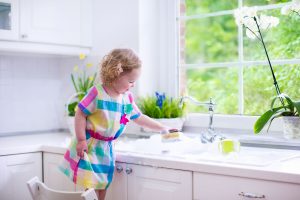 Our Recommendation — Read the labels. When reading a bottle of conventional household cleaners, you’ll often find labels that read, “hazardous to humans and domestic animals” or warnings cautioning consumers not to inhale. These are clear indications that you’re dealing with a toxic product. Steer clear of all-purpose cleaners with 2-Butoxyethanol, ammonia and other hard-to-pronounce ingredients. Just as with food, if you can’t easily spell or pronounce the ingredient, it likely isn’t good for you. Look for ingredients that are easily recognizable. Want to know which all-purpose cleaner This Organic Girl swears by? Obtain 40% off all of the Extra Value and Year of Capsules Bundles using the code: THENEWKNEW. To view Lisa’s full list of non-toxic cleaning supplies, along with some great discounts on products, visit TheNewKnew.com. There you’ll find additional product recommendations for odor control, window & stainless steel cleaners, wipes and more!
Our Recommendation — Read the labels. When reading a bottle of conventional household cleaners, you’ll often find labels that read, “hazardous to humans and domestic animals” or warnings cautioning consumers not to inhale. These are clear indications that you’re dealing with a toxic product. Steer clear of all-purpose cleaners with 2-Butoxyethanol, ammonia and other hard-to-pronounce ingredients. Just as with food, if you can’t easily spell or pronounce the ingredient, it likely isn’t good for you. Look for ingredients that are easily recognizable. Want to know which all-purpose cleaner This Organic Girl swears by? Obtain 40% off all of the Extra Value and Year of Capsules Bundles using the code: THENEWKNEW. To view Lisa’s full list of non-toxic cleaning supplies, along with some great discounts on products, visit TheNewKnew.com. There you’ll find additional product recommendations for odor control, window & stainless steel cleaners, wipes and more!
 Our Recommendation — Read the labels. When reading a bottle of conventional household cleaners, you’ll often find labels that read, “hazardous to humans and domestic animals” or warnings cautioning consumers not to inhale. These are clear indications that you’re dealing with a toxic product. Steer clear of all-purpose cleaners with 2-Butoxyethanol, ammonia and other hard-to-pronounce ingredients. Just as with food, if you can’t easily spell or pronounce the ingredient, it likely isn’t good for you. Look for ingredients that are easily recognizable. Want to know which all-purpose cleaner This Organic Girl swears by? Obtain 40% off all of the Extra Value and Year of Capsules Bundles using the code: THENEWKNEW. To view Lisa’s full list of non-toxic cleaning supplies, along with some great discounts on products, visit TheNewKnew.com. There you’ll find additional product recommendations for odor control, window & stainless steel cleaners, wipes and more!
Our Recommendation — Read the labels. When reading a bottle of conventional household cleaners, you’ll often find labels that read, “hazardous to humans and domestic animals” or warnings cautioning consumers not to inhale. These are clear indications that you’re dealing with a toxic product. Steer clear of all-purpose cleaners with 2-Butoxyethanol, ammonia and other hard-to-pronounce ingredients. Just as with food, if you can’t easily spell or pronounce the ingredient, it likely isn’t good for you. Look for ingredients that are easily recognizable. Want to know which all-purpose cleaner This Organic Girl swears by? Obtain 40% off all of the Extra Value and Year of Capsules Bundles using the code: THENEWKNEW. To view Lisa’s full list of non-toxic cleaning supplies, along with some great discounts on products, visit TheNewKnew.com. There you’ll find additional product recommendations for odor control, window & stainless steel cleaners, wipes and more!OUR WILDLY GREEN CLEANING RECOMMENDATIONS:
Lisa’s article, Clean Green: My Go-To Nontoxic Cleaning Supplies, contains many non-toxic cleaning products that you can find in your local grocery store. We also wanted to leave you with a few DIY cleaning solutions made from every-day household products. Check it out!
- Baking Soda, Lemon and Vinegar — This combination makes for a great sink cleaner and household air freshener to boot!
- Vodka — Believe it or not, vodka adds a great streak-free shine to metals and mirrors!
- Toothpaste — Have a big dinner party coming up? Grab the toothpaste from your medicine cabinet and use it to polish your silverware!
- Tea Tree Oil & Vinegar — Looking for a safe way to kill germs? Tea tree oil mixed with a tablespoon of vinegar and water acts as a germ-killer and all-purpose cleaner.
- Essential Oils — Add a soft, natural, fragrance to your homemade cleaning solutions using essential oils like lavender and peppermint!
- Liquid Soap & Vinegar — This duo cuts through tough grease and provides a safe & effective dishwashing soap.
- Plants — Did you know that having household plants can help reduce odor in the home?
